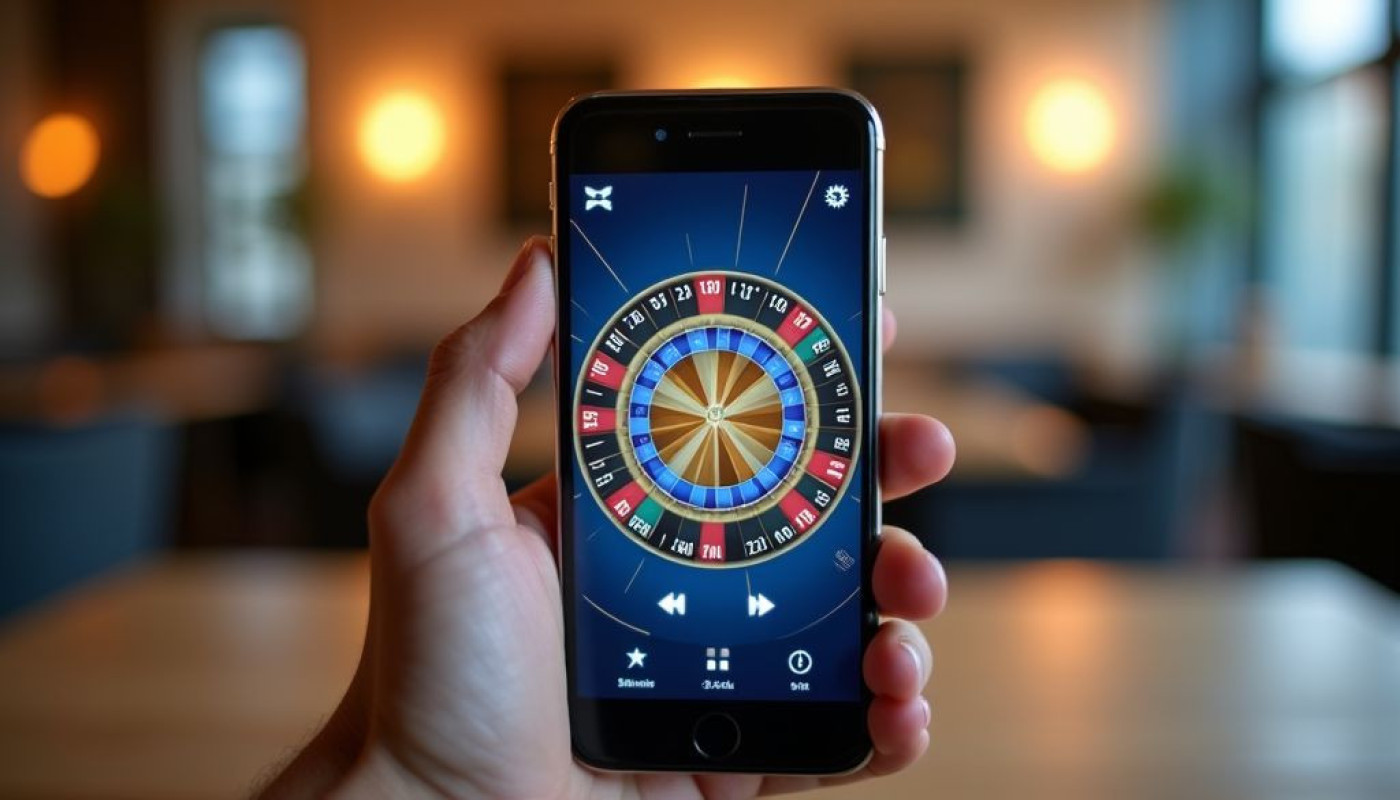Table of contents
Venturing into the vibrant world of casino games can be an exhilarating journey, one filled with highs and lows that tug at the very fabric of our emotions. The allure of a potential win can set hearts racing, while the disappointment of a loss can cast a shadow over even the most optimistic of spirits. The psychological impacts of winning and losing in casino games are profound, affecting more than just the wallet; they reach deep into our psyche, influencing our behavior, self-esteem, and overall well-being. As you delve into this exploration of the mental and emotional rollercoaster that casino games can induce, you'll gain insights into why these outcomes can have such a significant effect on players. Whether you're a seasoned gambler or a curious onlooker, understanding these psychological dynamics can enrich your comprehension of the human condition. So, prepare to unveil the enigma behind the thrills and spills of casino gaming, and perhaps, in doing so, learn to navigate the inevitable ebbs and flows with greater equanimity.
Emotional Aftermath of Winning
The triumph of clinching a win at a casino can set off a profound emotional high, a state of elation that engulfs players as they bask in the glory of victory. This surge of positivity is not just a fleeting moment of joy; it can also influence the player's subsequent actions in a significant way. Under the spell of success, individuals might develop a sense of invincibility, a misleading belief that luck is in their permanent favor. This can lead to skewed judgement and decision-making, with gamblers more inclined to take risks they might otherwise avoid.
The linkage between the emotional high of winning and subsequent risk-taking behavior is deeply entrenched in casino winning psychology. The phenomenon is further intensified by the principle of positive reinforcement; the pleasurable feelings and financial rewards of a win encourage players to continue their gambling pursuits in hopes of experiencing further successes. This is underpinned by what experts, such as clinical psychologists specializing in gambling addiction, term the "variable-ratio reinforcement schedule," where rewards are given out at unpredictable intervals. Crucially, this reinforcement schedule is known to foster a high rate of response, making it a potent mechanism within gambling environments. It's this unpredictable pattern of reinforcement that can make gambling so captivating, yet potentially dangerous, as it can lead players down a path of continued risk-taking and potentially problematic gambling behavior.
The Sting of Loss
Experiencing defeat in casino games often triggers a complex array of psychological effects. The initial frustration and disappointment that come with losing money can quickly spiral into an unhealthy pattern of 'chasing losses,' where individuals persist in gambling with the hope of recovering their funds. This behavior not only exacerbates the financial damage but also takes a toll on one's mental health. The 'psychology of losing' delves into how our minds struggle to cope with the negative emotions associated with defeat, potentially leading to stress and anxiety.
Moreover, cognitive distortions such as the "gambler's fallacy"—the erroneous belief that a string of losses boosts the chances of an imminent win—can perpetuate a cycle of betting that's hard to break. This is closely tied to the concept of 'loss aversion,' which reflects our innate tendency to prefer avoiding losses over acquiring equivalent gains, a preference that can drive irrational decision-making in the casino setting. The 'sunk cost fallacy,' a technical term in behavioral economics, further complicates matters by compelling individuals to continue gambling due to the investment they've already made, regardless of the prospects of future returns.
Understanding these psychological traps is vital for anyone involved in gambling activities. The insight of a behavioral psychologist with expertise in gambling behaviors can be invaluable in shedding light on why we respond the way we do to the highs and lows of gambling, and how we can mitigate the negative impacts of 'chasing losses' on our mental health. This knowledge not only informs personal strategies for responsible gaming but also guides the development of support systems for those affected by the darker side of gambling.
Self-Perception and Gambling Outcomes
The rollercoaster of emotions experienced within the world of casino gaming dramatically influences a player's self-esteem and self-image. The concept of "gambling self-esteem" refers to the self-worth a person attributes to themselves based on their successes or failures at the tables or slot machines. A consistent series of wins can lead to an inflated self-perception, inducing a feeling of invincibility and an overestimation of one's skills. This can potentially result in riskier bets and a disregard for the element of chance inherent in gambling activities.
Conversely, "self-image in gambling" can take a significant hit during a losing streak. Players may begin to harbor self-doubt and engage in negative self-assessment, questioning their decision-making abilities, and even their luck. This can spiral into a lack of confidence in other areas of life, illustrating the profound impact that "gambling outcomes" can have on personal psychology. A "balanced gambling perspective" is paramount in mitigating these psychological swings. Recognizing that wins and losses are often subject to chance and maintaining a realistic view of one's abilities can help preserve a stable "casino self-perception."
The task of navigating these complex emotional states falls within the realm of social psychology, with a particular focus on "self-concept" theories. A social psychologist might argue that understanding and managing one's gambling-related self-concept is pivotal in maintaining mental well-being in environments where chance plays a significant role. This balanced approach to gambling is not only healthier but can also lead to more rational decision-making when participating in casino games.
Long-Term Psychological Effects
The allure of casino games often lies in the thrill of risk and the potential for reward, but repeated engagement, whether one often wins or loses, can lead to significant long-term psychological effects. Individuals who frequently gamble may experience a range of issues, with gambling addiction being a prominent concern. This form of behavioral addiction can cause substantial lifestyle disruption, manifesting in neglect of personal and professional responsibilities, financial strain, and deteriorating physical health. Additionally, changes in social behavior can occur, such as withdrawal from family and friends or the development of relationships based on gambling activities rather than genuine social connection.
The impact on mental health is not to be underestimated. Persistent gambling can lead to increased anxiety, depression, and feelings of helplessness, particularly following losses. On the other hand, the elation from winning can create a psychological dependence that strives for that high, no matter the cost. Recognizing the signs of problematic gambling—a preoccupation with gambling, chasing losses, and gambling despite negative consequences—is vital for early intervention. Seeking help from professionals, such as addiction specialists or clinical psychologists with expertise in behavioral studies, can prevent the escalation of these issues and aid in recovery. If you’re searching for guidance or support in understanding the long-term gambling effects, this post might offer valuable insights into responsible play and the psychology of gambling.
Coping Mechanisms and Strategies
The negative psychological effects of gambling can be profound, and it's vital for individuals to have effective coping mechanisms at their disposal. Key strategies to maintain mental and emotional balance include setting concrete limits on the amount of time and money spent gambling, ensuring one remains within a budget that does not impact personal or household finances negatively. Equally relevant is a thorough understanding of the odds, which can help in maintaining realistic expectations and reducing the potential for distress when faced with loss.
Practicing responsible gambling practices is a proactive approach to preventing the development of problematic behaviors. This includes recognizing and accepting that losses are part of the gambling experience and gambling should not be used as a means to solve financial problems or escape from issues in one's personal life. Moreover, discussing gambling issues openly contributes to the normalization of seeking help and can lead to the sharing of effective strategies amongst peers. Support can also come from professionals; for instance, consulting with a gambling counselor or engaging in cognitive-behavioral therapy can provide tailored tools and techniques for dealing with the stresses associated with gambling.
By adopting these gambling coping mechanisms, individuals are better equipped to handle the highs and lows of casino games. It is imperative to view gambling as a form of entertainment rather than a source of income and to engage with it responsibly. When gambling ceases to be fun or begins to have a detrimental impact on one's life, it's time to reach out for support and consider altering gambling habits for better mental balance gambling outcomes.
Similar



























